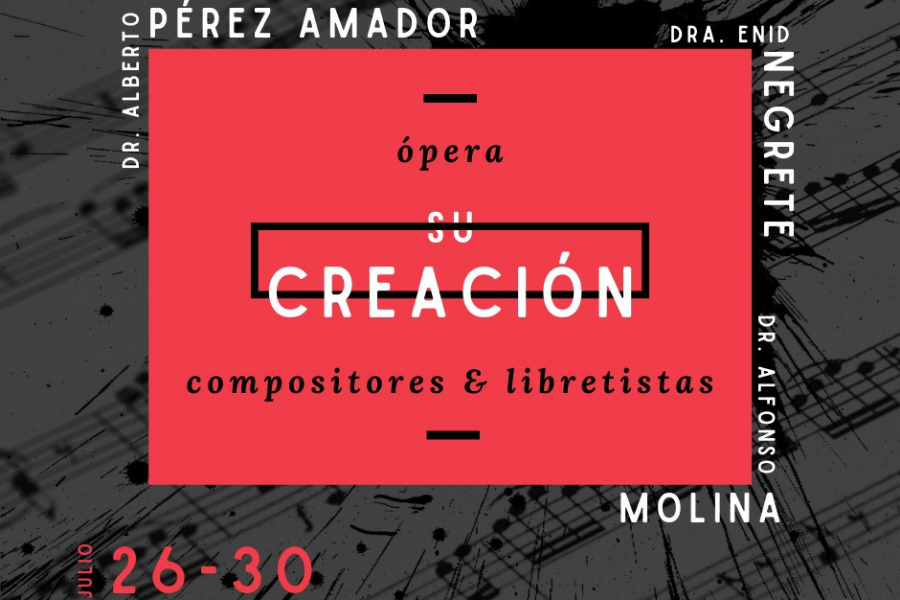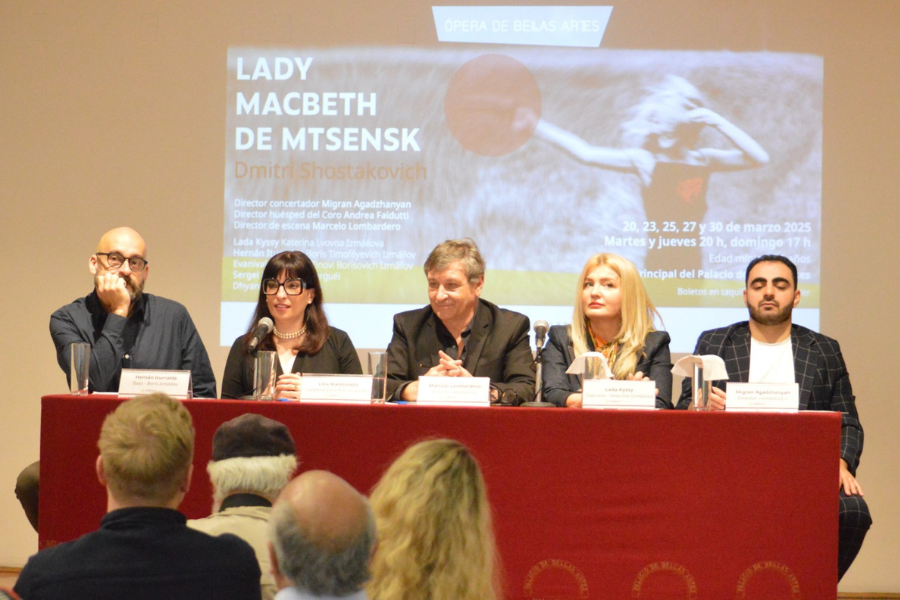StudioKatzarava launches an unprecedented program for the creation and study of libretto and operatic composition

The Opera workshop: its creation will take place online from July 26 to 30 and is aimed at composers, writers and anyone interested in opera creation. In the theoretical field, the program responds to the absence of a history of opera from the literary point of view, of which it will offer a panoramic review of 500 years. The teachers include the expert in lyrical art and scholar of the libretto, Alberto Pérez-Amador Adam, and the composer Alfonso Molina.
Despite the importance of the libretto in opera, there is still no history of operatic art from a literary point of view. Although it has been nourished by great feathers such as Hugo von Hofmannsthal, in the European tradition, or Octavio Paz, in Mexico, that half of the operatic universe, which is the word, has been forgotten for centuries from the point of view of historical and theoretical view.
Alberto Pérez Amador, an expert in the history of lyrical art, repairs this problem, who will be a teacher at The Opera: Its Creation, an unprecedented workshop in Mexico, organized by StudioKatzarava, which from July 26 to 30 will address, among other topics, the libretto operatic from a practical theoretical perspective. This analysis is part of an innovative study program, totally online, in which participants will obtain tools for writing, as well as the composition of scores and knowledge of applied drama theory.
Pérez-Amador highlights that all the great revolutions in opera occurred thanks to the fact that there was a text that changed the way of creating this art, which began to become popular as a rather theatrical form accompanied by music, and not the other way around, as it happened over time. “The libretto is something that today is totally despised, but in other times it was not like that”, observes the Mexican researcher, a doctorate from the University of Wuppertal, Germany, and who holds the prestigious degree of Habilitation from the Humboldt University of Berlin.
Figures such as Calderón de la Barca, Lope de Vega, Federico García Lorca or Alejo Carpentier make up the literary heritage of opera in the Spanish language, warns the Mexican-German expert. Miguel Ángel Asturias wrote Emulo Lipolidón: fantomima and Images of birth, both with music by José Castañeda; Xavier Villaurrutia owes the libretto of La mulata de Córdoba, with music by José Pablo Moncayo; while the novel La ciudad ausente, by Ricardo Piglia, gives rise to the homonymous title of Gerardo Gandini.
“They are our great authors, and we don’t mention them in the history of opera! It is surprising that this important part is never mentioned and is not recorded ”, considers Pérez-Amador. “This can no longer go on like this.”
The academic from the Autonomous Metropolitan University (UAM) seeks to rescue the study of this overlooked hemisphere of opera, to nurture the knowledge of current librettists inside and outside the country. For this reason, in the Opera workshop course: its creation, it will offer a panoramic review of 500 years of this literary history, from the 17th to the 21st centuries.
Regarding musical composition, the workshop will feature the experience of the Sonoran composer Alfonso Molina, author of operas such as Illegal Immigrant, Cartuchos de Fuego / Fire Cartridges and La estela invisible de Halley / Halley’s Invisible Wake.
“Beyond a composer working with a particular approach, a musical style, a structure or a certain musical notation, other things that we are going to talk about come into play, such as the techniques necessary to carry out a good opera: prosody , that is well written for the voice ”, exemplifies Alfonso Molina.
The management of digital platforms will also be an important aspect of this workshop, adds the musician. “We will see the importance of making a good digital layout, that is, that the models are listenable and as elegant as possible to show your opera before taking it to a larger production.”
The dramatic part will be in charge of the Mexican researcher, producer and stage director Enid Negrete, who has a doctorate in Performing Arts from the Autonomous University of Barcelona and author of the design of this workshop course.
In addition, the program will give creators the opportunity to work with professional singers of different tessitura, belonging to the opera studio founded by the Mexican soprano María Katzarava, to work their proposals with real voices.
The workshop will also have the participation of professional producers, composers and orchestra conductors with a consolidated trajectory in Mexico and abroad, who will provide feedback to participants on their projects, as well as advice and evaluations on their possible release to the public.





